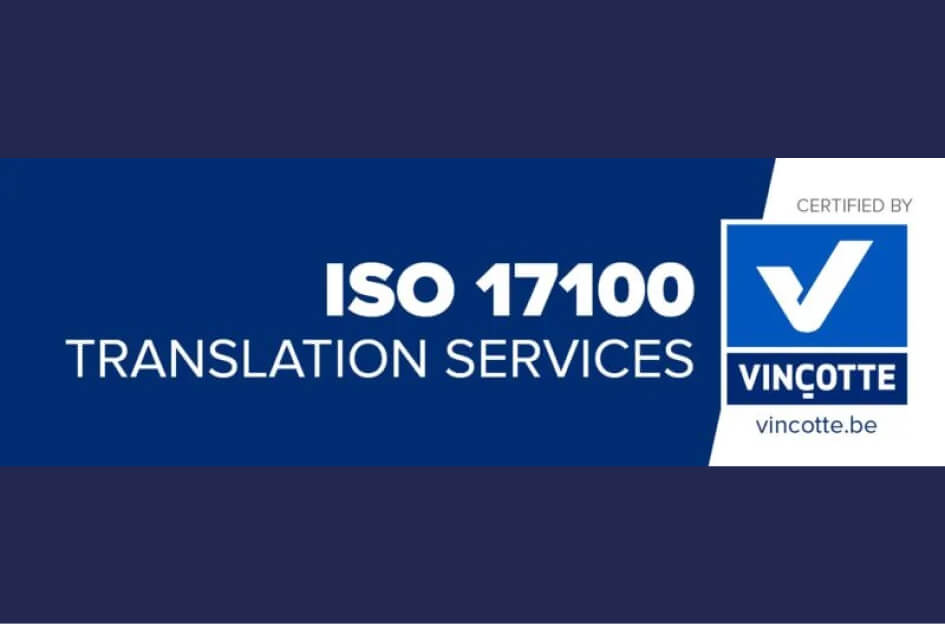Technical translation breaks down language barriers and facilitates effective communication across cultures. The demand for experienced technical translation and translators is at an all time high for translating complex technical texts, manuals, and documents. But why is accurate technical translation so crucial? Well, imagine trying to navigate a foreign market without understanding the intricacies of its technical communication. It’s like stumbling through a maze blindfolded! Businesses that invest in quality technical translation services gain a competitive edge by ensuring their message resonates with global audiences.
Although machine translators are getting advanced, nothing beats the human technical writing translation expertise and nuances. The translation process converts words from one language to another and captures the content’s essence and context. Technical writers rely on these skilled professionals to accurately convey their ideas and instructions, ultimately impacting international business success.
So how can businesses ensure their technical translations hit the mark? By partnering with experienced translators who possess an in-depth understanding of both the source and target languages.
Stay tuned for valuable insights into this fascinating field!
Definition and Explanation of Technical Translation:
Technical translation is a specialized field which translates complex content into different languages. Technical translators possess a deep understanding of the source and target languages along with subject matter technical expertise.
Precision and attention to detail are crucial. Translators need to ensure that complex information is accurately conveyed to the target audience, without losing any nuances or important details. Let’s delve deeper into what makes technical translation unique and challenging:
Deep Understanding of Source and Target Languages
Technical translators possess a profound understanding of the source language (the original text) and the target language (the translation language). Their expertise goes beyond knowing simple vocabulary and grammar. A professional technical translator also understands technical terminology, industry-specific jargon, and cultural nuances.
For example, a translator should be well-versed in languages and machinery specifications when translating a machinery user manual from English to German. If the translator lacks expertise, the translation may end confusing the end-users.
Accurate Conveyance of Complex Information
One of the primary objectives of technical translation is to ensure that complex information is accurately conveyed from one language to another. This can involve translating scientific research papers, engineering specifications, software documentation, safety documents, medical reports, or legal contracts.
To achieve accurate conveyance, technical translators must possess subject matter expertise in addition to their linguistic skills. They need to understand intricate concepts within their specialized fields and find equivalent terms or phrases in the target language that capture the same meaning precisely.
Precision and Attention to Detail
In technical translation, precision is paramount. The slightest error or omission can have serious consequences. For instance, inaccurately translated instructions in an aircraft maintenance manual could potentially lead to disastrous outcomes.
Translators must pay meticulous attention not only to words but also formatting conventions such as diagrams, tables, and symbols.
Importance of Technical Translation in the Global Market:
Facilitating International Trade and Collaboration
Technical translation plays an important role in the global market. It facilitates international trade and collaboration. Companies must effectively communicate with target audience to expand operations globally. The communication involves translating technical documents like product manuals, specifications, and patents, into the local language.
Accurate technical translation helps companies overcome language barriers and engage with potential customers in different countries. It allows them to present their products or services in any easily understandable manner to grow their reach. As a result of accurate translation, companies expand their customer base and increase global success opportunities.
Reaching a Wider Audience
One of the key benefits of technical language translation is helping companies reach a wider audience. Businesses make their products or services available to people around the world by translating technical content into multiple languages. This opens up new growth and expansion opportunities.
Take the example of software company that develops innovative applications. The company can attract users from various countries by translating their user interface, technical documentation, and support materials into different languages. Translation boosts their market reach and demonstrates respect for cultural diversity.
Enhancing Customer Trust and Satisfaction
Accurate technical translations are crucial for building customer trust and satisfaction. When consumers purchase products or services in unfamiliar markets or industries, they rely heavily on clear instructions and information provided in their native language.
By investing in professional technical translation services, companies demonstrate their commitment to delivering high-quality experiences for their customers worldwide. Clear communication through accurate translations helps users understand how products work, troubleshoot issues effectively, and maximize the value they derive from them.
Avoiding Misunderstandings and Legal Issues
On the flip side, inaccurate translations can lead to misunderstandings that have serious consequences for businesses operating globally. In technical fields, precision and clarity are paramount.
Challenges Faced in Technical Translation:

Complex Terminology and Jargon
Technical translation deals with complex terminology and industry-specific jargon. Translators possess a deep subject-matter understanding to convey meaning from one language to another accurately. For example, translating technical terms in engineering, medicine, or computer science fields requires specialized vocabulary. Translators face the challenge of finding equivalent terms that maintain the intended meaning of human translation while ensuring clarity for the target audience.
Maintaining Consistency Across Various Documents
In technical translation projects, consistency is crucial to ensure accuracy and coherence across multiple documents. Translators need to adhere to consistent terminology, style guides, and guidelines provided by clients or organizations. This ensures that translations remain uniform throughout different materials such as user manuals, product specifications, or software documentation. Achieving consistency can be challenging when dealing with long texts or projects involving multiple translators.
Translating Cultural References
When translating scientific or technical knowledge content for an international audience, cultural references pose a unique challenge. Adapting content appropriately for the target culture requires not only linguistic skills but also cultural sensitivity. For instance, idiomatic expressions or humor may not translate directly into other languages and could potentially confuse readers if not adapted correctly. Translators must carefully consider cultural nuances while maintaining the accuracy of the translated text.
Keeping Up with Rapidly Evolving Technology
The fast-paced nature of technology presents an ongoing challenge for technical translators. As new technologies emerge and existing ones evolve, technical translators work must stay updated on industry trends and terminologies related to these advancements. This includes familiarizing themselves with new software applications, hardware components, programming languages, and other technical concepts relevant to their field of expertise. Staying current ensures accurate translations that reflect the latest technological developments.
Specialization in Technical Translation: Fields and Expertise:
Different fields require specialized knowledge
Technical translation is a diverse field that requires translators to have specialized knowledge in various industries. For instance, medical translations involve complex terminology related to healthcare, pharmaceuticals, and medical devices. Legal translations require an understanding of legal jargon and the ability to accurately convey the nuances of different legal systems. Engineering translations deal with technical specifications, blueprints, and manuals.
Translators often specialize in specific industries
To provide accurate translations, many translators choose to specialize in specific industries. This specialization allows them to become experts in the terminology and language used within those fields. By focusing on a particular industry, translators can ensure that they are up-to-date with the latest developments and regulations specific to that area.
For example:
A translator specializing in automotive engineering would be well-versed in terms like “torque,” “horsepower,” and “cylinder compression.”
An expert in software localization would understand how to adapt user interfaces for different languages while maintaining a seamless user experience.
A translator specializing in patent research would possess an in-depth knowledge of patent laws, enabling them to accurately translate technical documents related to patents.
Expertise in software localization ensures seamless user experiences
Software localization makes products accessible across different languages and cultures. Translators with socual localization expertise understand how to adapt user interfaces, menus, error messages, and other elements of software applications into different languages. This expertise guarantees that users from various linguistic backgrounds can navigate the software effortlessly.
Understanding industry-specific regulations is crucial
Technical translation requires more than just language skills; it also demands an understanding of industry-specific regulations. Whether it’s compliance requirements for medical devices or the health and safety standards for engineering projects, precise translations necessitate familiarity with the regulatory frameworks governing each field.
Terminology Management and Subject Matter Expertise in Technical Translation:
Consistency through Terminology Management Tools
One crucial aspect of technical translation is maintaining consistency in the translated materials. This is where terminology management tools come into play. These tools allow translators to create and manage a database of technical terms specific to technical translation covers an industry or subject matter. By utilizing these tools, translators can ensure that the same term is consistently used throughout the translated documents, enhancing clarity and comprehension for readers.
Collaborating with Subject Matter Experts (SMEs)
Technical translation often involves complex subject matters that require specialized technical knowledge. This is where subject matter experts (SMEs) come in. SMEs collaborate closely with translators to provide their expertise on intricate technical concepts, ensuring accurate understanding and representation in the translated content.
The collaboration between SMEs and translators enables a deeper grasp of industry-specific technical language translation jargon, ensuring precise translations that resonate with professionals familiar with the field. Through this partnership, both parties work together to deliver accurate and effective translations that maintain the integrity of technical information.
In-Depth Research for Industry-Specific Concepts
To accurately translate technical documents, extensive research is conducted by translators. Before diving into the actual machine translation post editing process, they delve deep into industry-specific concepts to gain a comprehensive understanding of the subject matter at hand.
This thorough research allows translators to capture not only the words but also the underlying meaning behind them. It ensures that technical terms are correctly interpreted within their specific context, avoiding any potential misinterpretations or inaccuracies in conveying critical information.
Precision through Knowledge of Industry Standards
Technical translation requires familiarity with industry standards and guidelines related to specific fields such as engineering, medicine, patents, or software development. Translators possessing this knowledge can render technical information precisely according to established norms.
By adhering to industry standards during translation, professionals can guarantee that important details are accurately conveyed across languages while complying with relevant regulations and practices.
Choosing the Best Professional Technical Translation Services:
Proven Track Record in Technical Translations
It’s crucial to choose a service provider with a proven track record. Look for translation agencies that have successfully handled similar projects in the past. A solid track record demonstrates their expertise and reliability in delivering accurate translations. Consider checking their portfolio or client testimonials to get an idea of their experience and capabilities.
Expertise in Relevant Industries
Not all technical translations are the same, as each industry has its own unique specialized terminology and requirements. When selecting a professional translation service, consider their expertise in industries relevant to your project. Whether it’s engineering, software development, or medical research, having translators who understand the specific jargon and nuances of your field will ensure accurate and effective translations.
Qualified Translators and Subject Matter Experts
The translation quality depends on translator’s skills and knowledge. Hire translation agencies with a team of qualified translators and subject matter experts (SMEs). SMEs have domain understanding and experience which allows them to accurately translate complex technical content while maintaining its intended meaning.
Quality Assurance Processes
To ensure accurate and error-free translations, it is crucial to assess the quality assurance processes employed by the translation service provider. Look for agencies that have robust quality control measures in place. These may include multiple rounds of proofreading, editing by native speakers of the target language, or utilizing specialized software tools for consistency checks.
In addition to these talking points, there are several other factors you should consider when choosing professional technical translation services:
Target Languages: Ensure that the agency offers translations in your desired target languages.
Advantages: Evaluate what advantages different agencies offer over others – such as fast turnaround times or competitive pricing.
Software: If you require software localization services along with technical translation, check if the agency has experience working with software strings and adapting them to different languages.
Target Audience
Conclusion
In conclusion, technical translation plays a crucial role in today’s global market. It ensures effective communication and understanding between businesses, professionals, and consumers across different languages and cultures. Technical translation involves translating specialized content from one language to another while maintaining accuracy, clarity, and consistency.
The significance of the technical document translation lies in its ability to bridge the language gap and facilitate international collaborations. By accurately translating technical documents such as user manuals, product specifications, patents, and research papers, companies can expand their reach to new markets and cater to a wider audience.
However, there are challenges that come with technical translation. These include dealing with complex terminology, industry-specific jargon, cultural nuances, legal and practical requirements and the need for subject matter expertise. Overcoming these challenges requires specialized knowledge and experience in the relevant fields.
To ensure high-quality technical translations, it is essential to choose professional translation services that specialize in technical content. These services should have a strong focus on terminology management and employ subject matter experts who understand the intricacies of specific industries.
In order to make an informed decision when selecting a technical translation service provider, consider factors such as their reputation for accuracy and reliability. Look for testimonials or case studies that demonstrate their expertise in handling similar projects.
Overall, investing in professional technical translation services is essential for businesses looking to expand globally by reaching diverse audiences. Companies can effectively communicate their products or services worldwide by providing accurate translations that convey the intended meaning without losing product details.
FAQs
Q: How long does a technical translation project take?
A: Completing a technical translation project depends on various factors such as the document length content complexity, resource availability and urgency. It is best to discuss your specific requirements with the a technical translator to get a more accurate estimate.
Q: Can machine translation tools be used for technical translations?
A: While machine translation tools have advanced in recent years, they may not be suitable for technical translations due to the complexity of the content and the need for accuracy. Human translators with subject matter expertise are better equipped to handle technical terminology and ensure quality translations.
Q: How can I ensure confidentiality of my technical documents during translation?
A: When working with a professional translation service, implement strict confidentiality measures. Sign a non-disclosure agreements (NDAs) and employ secure file transfer protocols to protect your sensitive information.
Q: What if I need revisions or changes after the translation is completed?
A: Reputable translation service providers usually offer revision services to address any issues or changes required after the initial translation. It is important to discuss revision policies and costs with the provider before starting the project.
Q: Can technical translation services handle multiple languages?
A: Yes, many technical translation services have a network of linguists proficient in various languages. They can provide translations for multiple language pairs, allowing you to reach diverse markets efficiently.




